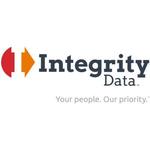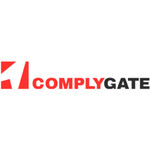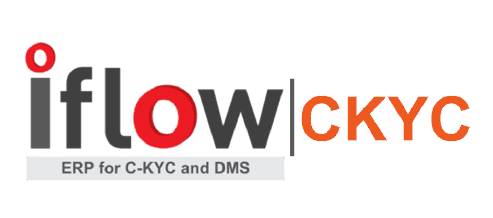Description
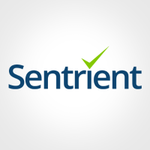
Safeguard
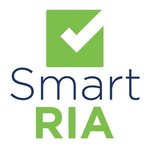
Smart RIA
Comprehensive Overview: Safeguard vs Smart RIA
As of my last update, "Safeguard" and "Smart RIA" are two different entities or products targeting specific markets, primarily within the realm of regulatory compliance and risk management. Here's a comprehensive overview:
Safeguard:
a) Primary Functions and Target Markets:
-
Primary Functions: Safeguard is typically associated with providing solutions focused on risk management, compliance, and security. The core functions usually include data protection, threat detection, and incident response. These solutions help businesses safeguard their sensitive information against cyber threats and ensure compliance with various regulatory standards.
-
Target Markets: Safeguard primarily targets industries that require stringent data protection and compliance measures. This includes financial services, healthcare, and large enterprises where the security and integrity of data are paramount.
b) Market Share and User Base:
-
Market Share: Safeguard tends to compete in a broad market with numerous other security and compliance vendors. Its market share would depend significantly on the specific niche it serves (e.g., small businesses, specific industry verticals).
-
User Base: The user base would include companies in highly regulated industries with a strong emphasis on maintaining compliance with industry standards like HIPAA, GDPR, or financial regulations.
c) Key Differentiating Factors:
-
Innovative Technology: Solutions may include advanced threat detection, real-time monitoring, and AI-driven analytics to enhance predictive security capabilities.
-
Customization and Integration: Flexibility in customizing solutions to fit specific company needs and seamless integration with existing IT infrastructure can be a strong differentiator.
Smart RIA:
a) Primary Functions and Target Markets:
-
Primary Functions: Smart RIA is a platform designed for compliance management, especially for Registered Investment Advisors (RIAs). It provides tools to manage regulatory compliance tasks, automate audits, and streamline ongoing compliance monitoring processes.
-
Target Markets: The primary market for Smart RIA includes financial advisory firms, specifically RIAs who need to adhere to stringent regulations and ensure they remain compliant with state and federal laws.
b) Market Share and User Base:
-
Market Share: Smart RIA operates in the niche market of compliance solutions for investment advisors, facing competition from similar platforms in the financial compliance software space.
-
User Base: Smart RIA’s user base primarily consists of small to medium-sized advisory firms focusing on managing compliance in a more efficient and automated manner.
c) Key Differentiating Factors:
-
Specialization in RIA Compliance: Smart RIA focuses specifically on the compliance challenges faced by RIAs, enabling it to offer more tailored solutions than broader compliance platforms.
-
User-Friendly Interface: The platform typically emphasizes ease of use, which is vital for small advisory firms that may not have extensive in-house compliance expertise.
-
Comprehensive Compliance Tools: Smart RIA often provides a suite of tools that cover a wide range of compliance requirements, from policy management to employee training, which can be a significant advantage for RIAs.
Comparative Overview:
-
Functionality Focus: While both Safeguard and Smart RIA are concerned with compliance, Safeguard has a broader focus on security across multiple industries, whereas Smart RIA is specialized for the financial advisory sector.
-
User Base and Market: Safeguard serves a wider range of industries, whereas Smart RIA is specifically targeted at RIAs.
-
Industry Relevance: Each product offers distinct advantages tailored to their respective industries—Safeguard emphasizes security and data protection, while Smart RIA highlights regulatory compliance for financial advisors.
In conclusion, the choice between these solutions depends strongly on the specific industry requirements and the regulatory environment in which a company operates. For security-intensive needs, Safeguard would be more appropriate, whereas for compliance management within financial advisory, Smart RIA offers a specialized approach.
Contact Info

Year founded :
2015
Not Available
Not Available
Netherlands
Not Available

Year founded :
Not Available
Not Available
Not Available
Not Available
Not Available
Feature Similarity Breakdown: Safeguard, Smart RIA
To provide a feature similarity breakdown for Safeguard and Smart RIA, we need to consider their primary functions, target users, and how they support compliance and risk management, though it’s important to note that product features and interfaces are subject to updates or changes. Here’s a general comparison based on typical functionalities associated with these platforms:
a) Core Features in Common
-
Compliance Management: Both platforms offer tools to help businesses manage regulatory compliance requirements, including automated workflows and documentation processes.
-
Risk Assessment: They include features for assessing and mitigating risks associated with business or financial activities.
-
Reporting and Analytics: Each platform provides reporting tools and analytics to help users monitor compliance status and performance metrics.
-
Document Management: They support organizing, storing, and retrieving compliance-related documents efficiently.
-
User Access Controls: Both have features to define user roles and permissions, ensuring sensitive information is accessed only by authorized individuals.
-
Audit Trails: Safeguard and Smart RIA typically include comprehensive audit trails to track changes and actions taken within the system.
b) User Interface Comparison
-
Safeguard: Generally provides an intuitive and straightforward interface designed for quick adoption, focusing on providing clear navigation and accessible menus suited for compliance management tasks.
-
Smart RIA: Known for its user-friendly and modern interface, tailored for the financial advisor market, offering dashboards and wizards that guide users through various compliance processes seamlessly.
c) Unique Features
-
Safeguard:
- May include advanced data protection tools and integrations tailored for specific industries such as healthcare or finance, focusing on comprehensive security beyond just compliance.
- Could feature customizable risk management modules that cater to specific customer needs.
-
Smart RIA:
- Tailored specifically for the financial industry, it often includes features such as integration with financial custodians and CRM platforms, focusing on advisor-client interactions.
- Offers specific solutions for Registered Investment Advisors (RIAs) including performance reviews and ADV Part 2 preparation tools which might not be available or as specialized in Safeguard.
The specific unique features can evolve over time as each company updates its offerings and adds new capabilities in response to regulatory changes or customer feedback. As always, I recommend confirming current, detailed specifications directly from the providers or through product demos to get the most accurate and up-to-date feature sets.
Features

Not Available

Not Available
Best Fit Use Cases: Safeguard, Smart RIA
Safeguard and Smart RIA are tools designed to help businesses manage compliance and regulatory requirements, but they serve slightly different needs and industries. Here's a breakdown of their best fit use cases:
Safeguard
a) For what types of businesses or projects is Safeguard the best choice?
-
Enterprise-Level Organizations: Safeguard is ideal for large organizations that need to manage substantial security, risk, and compliance issues. It provides scalable solutions that can integrate with a variety of enterprise systems.
-
Industries with High Compliance Needs: Sectors such as finance, healthcare, and government agencies, where data security and compliance with regulations like HIPAA, GDPR, or SOX are critical, benefit greatly from Safeguard’s robust capabilities.
-
Projects Requiring Strong Identity and Access Management: Businesses that need comprehensive identity security solutions to protect sensitive data and manage who has access to what resources can leverage Safeguard for its advanced access management and governance features.
-
Companies Implementing Zero Trust Architectures: Organizations that are transitioning towards or looking to implement zero trust security frameworks will find Safeguard’s tools very supportive.
Smart RIA
b) In what scenarios would Smart RIA be the preferred option?
-
Registered Investment Advisors (RIAs) and Financial Planners: As the name suggests, Smart RIA is specifically tailored for RIAs and those in the financial services industry who need to manage compliance with regulatory bodies such as the SEC and FINRA.
-
Small to Medium Financial Firms: Smaller financial entities that need a cost-effective solution to manage compliance easily will benefit from Smart RIA, as it is designed to simplify complex regulatory requirements for firms without extensive resources.
-
Advisory Firms Focusing on Workflow Efficiency: Those looking for streamlined workflows that integrate compliance tasks into their daily operations would find Smart RIA advantageous due to its intuitive dashboards and automation capabilities.
-
Companies Needing Client Audit Preparation: Firms that want assistance in preparing for audits and maintaining comprehensive compliance records will find Smart RIA useful for its audit-tracking and documentation features.
d) How do these products cater to different industry verticals or company sizes?
-
Industry Verticals:
- Safeguard serves a broad range of verticals with a focus on those requiring rigorous security and compliance measures, like finance, healthcare, and government.
- Smart RIA is focused primarily on the financial services sector, especially targeting RIAs, fiduciaries, and compliance officers in investment advisory firms.
-
Company Sizes:
- Safeguard suits both medium to large enterprises due to its extensive features that can scale with the size of the business and its complex security needs.
- Smart RIA, on the other hand, is more fitting for small to medium-sized financial firms that require compliance management solutions but cannot afford or do not need the more robust and expensive systems required by larger enterprises.
In summary, Safeguard is the go-to for larger organizations across diverse industries with high compliance and security needs, while Smart RIA is tailor-made for smaller financial firms focused on compliance efficiency and regulatory adherence. Each product is built to enable companies to meet their compliance responsibilities in a manner best suited to their industry and operational scale.
Pricing

Pricing Not Available

Pricing Not Available
Metrics History
Metrics History
Comparing undefined across companies
Conclusion & Final Verdict: Safeguard vs Smart RIA
To provide a comprehensive conclusion and final verdict for Safeguard and Smart RIA, let's evaluate both products based on their features, pricing, usability, and overall value to determine which offers the best fit for users.
a) Best Overall Value
Considering all factors, Smart RIA generally offers the best overall value, particularly for firms seeking robust regulatory compliance management and advanced features tailored for Registered Investment Advisors (RIAs). Its comprehensive suite of tools combined with customizability and integrations tends to provide more substantial returns for investment in terms of efficiency and compliance assurance.
b) Pros and Cons of Each Product
Safeguard
Pros:
- User-Friendly: Safeguard often boasts an intuitive interface, making it easy for users to learn and operate efficiently without needing extensive training.
- Cost-Effective: Typically offers competitive pricing, which can be attractive for small to medium-sized firms.
- Basic Security Features: Provides essential security measures to protect client data.
Cons:
- Limited Advanced Features: May lack some of the advanced compliance features found in more specialized software like Smart RIA.
- Integration Limitations: Fewer integration options might not satisfy firms looking for interconnected systems that support various business functions.
- Scaling Issues: Might not be as well-suited for larger firms with more complex needs or those experiencing rapid growth.
Smart RIA
Pros:
- Comprehensive Compliance Tools: Offers a wide range of features dedicated to ensuring regulatory compliance, which can greatly reduce risks and potential fines.
- Customizable Workflows: Provides flexibility to tailor workflows and processes to match specific firm requirements and strategies.
- Strong Integration Capabilities: Excellent integration options with other systems and platforms, enhancing overall workflow efficiency.
Cons:
- Higher Price Point: Generally more expensive, which can be a concern for smaller firms with limited budgets.
- Steeper Learning Curve: The extensive range of features may require more training and onboarding time.
c) Recommendations for Users
-
Evaluate Needs: Users should start by evaluating their specific needs. If a firm requires strong compliance management features with the capability to integrate with other software, Smart RIA would be the preferred choice. However, for firms with simpler compliance needs and a tighter budget, Safeguard might suffice.
-
Budget Considerations: For smaller firms or those just starting, evaluate whether the advanced features of Smart RIA justify its costs based on projected growth and compliance needs. Safeguard might be a better entry point with a plan to scale up.
-
User Experience: Consider the technical proficiency of the team. A more tech-savvy team may benefit from Smart RIA’s complex functionalities, whereas those favoring simplicity might prefer Safeguard's straightforward approach.
-
Trial and Feedback: Take advantage of free trials or demos offered by these platforms. Use this period to gather feedback from team members about usability and practicality in real-world scenarios.
By weighing these factors and recommendations, users can make informed decisions tailored to their immediate needs and long-term business goals.
Add to compare
Add similar companies
